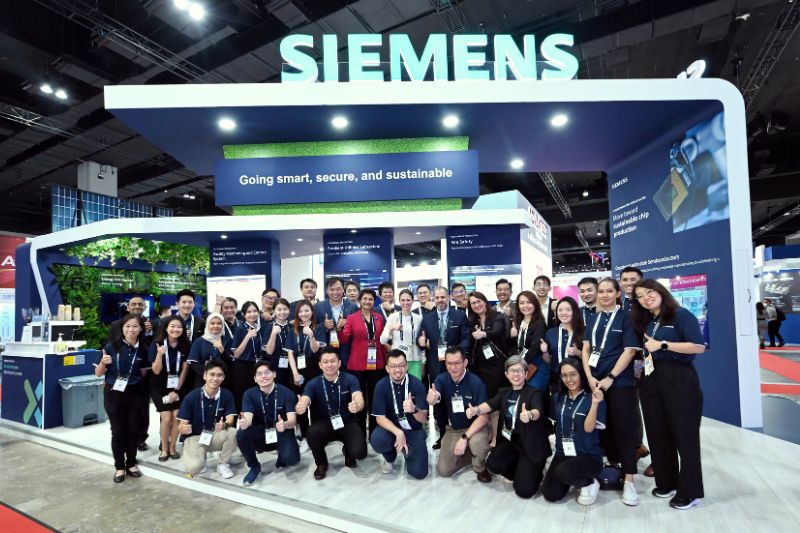Siemens Malaysia President & CEO, Tindaro Danze, welcomed the announcement of the National Semiconductor Strategy (NSS), unveiled by Prime Minister Anwar Ibrahim at Semicon SEA 2024, adding that it aligned with Siemens’ vision of creating a sustainable, technologically advanced semiconductor ecosystem in the country. The NSS, supported by some US$5.3 billion (RM25 billion) in fiscal incentives, aims to position Malaysia as a global semiconductor leader.
Siemens Welcomes National Semiconductor Strategy
Danze highlighted the NSS's emphasis on domestic direct investment (DDI), and how certain emerging industries will drive semiconductor demand. “The EV sector and AI applications will significantly drive semiconductor chip demand, necessitating the expansion of data centres and advanced chip manufacturing.
“As the only player in the semiconductor industry with solutions across the entire value chain – from research to design and production - Siemens is committed to supporting the NSS and Malaysia’s semiconductor industry more broadly. This comprehensive involvement allows Siemens to deliver unmatched expertise and solutions at every stage of semiconductor manufacturing,” Danze remarked.
Siemens Malaysia is further giving effect to the Prime Minister’s call to nurture some 60,000 engineers in the semiconductor space over the next decade.
“This resonates with Siemens because we believe strongly that it is essential to bridge the talent gap by equipping workers with the latest knowledge and competencies in advanced semiconductor technologies. To this end, we have been partnering with the Selangor Technical Skills Development Centre (STDCx) and other local universities to develop cutting-edge syllabus to upskill existing workforce, and equipping incoming talents,” added Danze.
Building sustainability into chipmaking
A report by Boston Consulting Group (BCG) and SEMI, the global industry association that represents the semiconductor industry, indicates that approximately 65% of manufacturing emissions in the semiconductor industry are attributable to electricity generation alone. The same report found that the value chain – including design automation and intellectual property, water fabrication, chip design, package, assembly, and test – is responsible for 0.3% of global carbon emissions and includes another 1% in upstream and downstream suppliers and users.
Helping the industry improve on sustainability is a key priority for Siemens. “With Siemens Xcelerator and advanced technologies like digital twin and AI, we harness data to create efficiencies and value, empowering organizations to adapt to changing needs,” said Katharina Westrich, Global Head of Electronics, Semiconductors & Simulation at Siemens AG.
“In fact, our own plants showcase this commitment, equipped with the latest automation and digitalization solutions. Siemens offers comprehensive, end-to-end digitalization for semiconductor processes, enabling companies to become sustainable digital enterprises. By standardizing procedures and providing real-time insights from digital twins, we help semiconductor companies achieve operational excellence.”
Siemens is addressing these challenges in multiple ways, for example, by also optimizing power distribution networks, ensuring reliable, efficient, and safe electricity delivery, and integrating smart technologies into buildings to enhance safety, efficiency, and comfort for semiconductor manufacturing. The company’s Facility Monitoring and Control System (FMCS) provides a holistic approach that integrates all systems, leading to extremely high productivity and availability.
Siemens has also adopted scalable predictive maintenance in industries such as manufacturing, energy, and transportation. Utilizing sensor data, analytics, and artificial intelligence (AI), Siemens monitors equipment health, predicts failures, and optimizes maintenance activities, thus improving operational efficiency and reducing downtime. An example is the Senseye Predictive Maintenance solution, which enables asset intelligence across plants without the need for manual analysis, helping manufacturers increase productivity, work more sustainably, and accelerate digital transformation.
Siemens’s participation at Semicon SEA 2024 underscored its commitment to supporting Malaysia's semiconductor industry through innovation, sustainability, and workforce development.
For more information, visit Siemens Malaysia.


